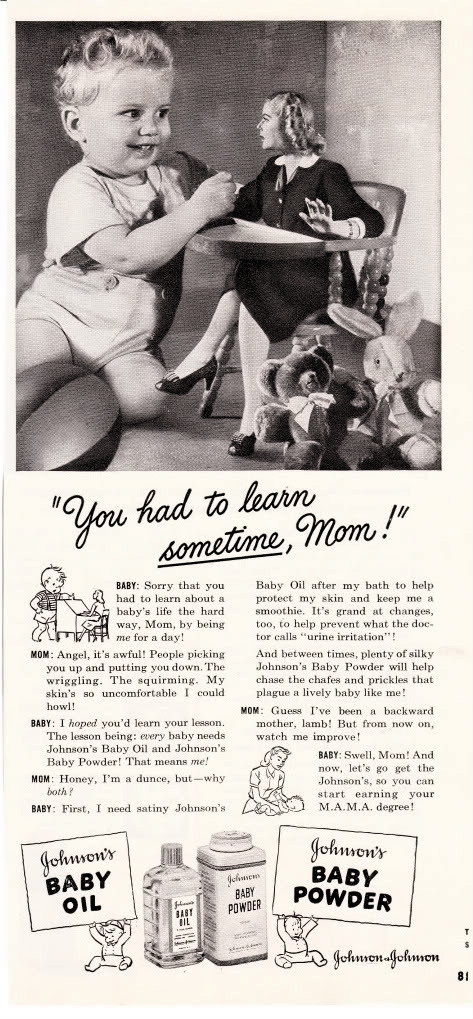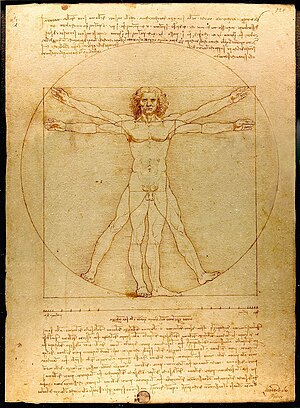Babies
Crime-Fighting Babies
Business owners in southeast London are decorating their store fronts with giant pictures of babies, in the hope that such pictures will deter criminals and rioters. [The Blaze]Maybe it's just me, but something looks odd about the baby in the picture. I think it's the hair. I know some babies are born with more hair than others, but that kid has such a full head of hair that he looks like he's wearing a wig. Also, (and I know this is not a comparison that would occur to most people) he vaguely reminds me of the (fake) baby Adolf Hitler.

Posted By: Alex - Sun Sep 09, 2012 -
Comments (5)
Category: Babies, Crime
The Attack of the 20-Foot Baby

Posted By: Alex - Wed May 30, 2012 -
Comments (7)
Category: Babies, Advertising, Giant People in Ads
My last placenta-related post… I promise
I came across the following placenta anecdote, related by Dr. H. Michener of Wichita, Kansas at the American Association of Progressive Medicine, held in Chicago, September 1917. It seemed worthy of sharing here:When the farmer returned home he found his wife and the new-comer in such a remarkably fine condition, he hastened to the barn to thank Mike for his good stewardship; but Mike replied, "I had a 'ell of a time to get the Missus to eat the afterbirth."
Posted By: Alex - Sun Apr 15, 2012 -
Comments (2)
Category: Babies, Pregnancy
More Placenta Weirdness
After posting a few days ago about the doctor who was speculating about the benefits of eating placenta, I realized I had merely scratched the surface of placenta weirdness. There's also a growing interest in placenta art — that is, smearing the placenta against a piece of paper and calling it art.
Another option is to transform your placenta into a placenta teddy bear. Your kid is sure to need years of therapy once he gets old enough to realize what he's been cuddling up with at night.

Posted By: Alex - Sat Apr 14, 2012 -
Comments (3)
Category: Art, Babies, Pregnancy
The Benefits of Placentophagy
In a recent article in the journal Ecology of Food and Nutrition, Mark Kristal argues that placentophagia (that is, the eating of afterbirth or placenta) could offer significant benefits for humans — especially considering that all other mammals (including non-human primates) do it. (link: ScienceDaily.com). These benefits might include increasing mother-infant interaction, increasing the effects of pregnancy-mediated analgesia in the delivering mother, and potentiating opioid circuits in the maternal brain that facilitate the onset of caretaking behavior. He acknowledges that these possible benefits don't warrant "the wholesale ingestion of afterbirth," but he does think the issue deserves further study.The strange thing is that although all other mammals practice placentophagy, no human cultures do (according to Dr. Kristal) — except for Hollywood celebrities.
Posted By: Alex - Mon Apr 09, 2012 -
Comments (6)
Category: Babies, Food, Nutrition, Health
Weird Shorts – 4

That’s not to say that our massive consumption doesn’t have it’s upside, As Vangelis Kapatos of Manhattan discovered when he attempted suicide by jumping from his ninth floor flat, only to survive when his fall was broken by a pile of uncollected garbage. Mr. Kapatos’ timing, from his perspective, couldn’t have been worse, the unusually large garbage pile was due to collections being suspended because of snow. They were due to resume the day after his impromptu dumpster dive (Today Online).
Mind you, we’re not the only animals prone to excess. After finding the bodies of dozens of starlings near the city of Constanta in Romania, locals were concerned that the cause might be bird flu, instead post-mortems of the birds have revealed that they in fact died of alcohol poisoning, having ‘drunk’ themselves to death on the discarded leftovers of the local winemaking industry. A least they died happy (BBC News).
Better than dying happy, though, is living happy, and the secret of that, says the UK’s Office for National Statistics, is having a job. But it’s not the pay but the job security that counts, say the government statisticians, which ironically are facing staff cuts themselves due to the economic downturn. Other key happiness factors, according to the preliminary report, are good personal health and a decent family life. What will we do without these people (Telegraph)?
More in extended >>
Posted By: Dumbfounded - Thu Jan 13, 2011 -
Comments (4)
Category: Animals, Dinosaurs and Other Extinct Creatures, Armageddon and Apocalypses, Babies, Crime, Death, Human Marvels, Inebriation and Intoxicants, Religion, Sexuality, Weird Names, Body Fluids, Perfume and Cologne and Other Scents
Follies of the Mad Men #105
I'm sorry, that trailing umbilical cord freaks me out too much to pay attention to the message.
Posted By: Paul - Mon May 31, 2010 -
Comments (7)
Category: Babies, Health, Disease, PSA’s, Pregnancy
Weird Science - I Sing The Body Eccentric

Social pressure also crops up in explaining another finding this week, this one by Meridith Young of McMaster University in Ontario, that what single women eat depends a lot on whom they are eating with. After covertly monitoring the canteen behaviour of 470 undergraduates, Young found that women significantly lowered their calorie intake when sat with men compared with all women groups. Moreover, the more men a woman sat with, the less on average she consumed. In the journal Appetite, she puts the discrepancy down to women unconsciously advertising themselves to men, adding "the salad leaves are meant to say, I'm pretty, I'm attractive, I take care of myself" (Guardian).
Of course, we all know what men really like in a woman; that she not appear too powerful. Or so says a study by Brian Meier and Sarah Dionne of Gettysburg College in Pennsylvania. In the study, eighty 19 year-olds were asked to rate the attractiveness of a number of images presented in random order, some of which would be repeated. In fact the subjects saw each image twice, once near the top of the screen and once low down. The researchers found that men rated women 1.8% more attractive when observed near the bottom, and women found men 1.5% better looking when higher up. They suggest that their findings might explain why men are taller than their women partners more frequently than would be expected by chance (Times of India).
As to what women really like in men, perhaps not being British should be somewhere on the list. After champagne controversially lost out to an English wine earlier this week, French scientists have hit back at British research that concluded that the mythical “G-spot” did not exist. “Of course it exists,” say French gynaecologists, “you just can’t find it!” The original study by King’s College in London looked at over 900 pairs of identical or non-identical twins in the expectation that the identical siblings should both report having a G-spot more frequently than the others, they did not. The French however claim their cross-channel colleagues have got the wrong end of the speculum, “It is not a question of genetics but of use," said one (Telegraph).
More in extended >>
Posted By: Dumbfounded - Wed Feb 03, 2010 -
Comments (6)
Category: Babies, Cosmetics, Exercise and Fitness, Politics, Science, Anthropology, Experiments, Psychology, Sexuality, Divorce, Obesity
Not So Cute Baby
When babies go robotic, they seem more creepy and less cute. Hopefully, these guys will figure out a better face!!But I bet they would sell better if they looked like Chuckie!!
Posted By: gdanea - Wed Oct 21, 2009 -
Comments (4)
Category: Babies
Try Not To Laugh at This Serous Baby
There's a reason this clip has over 28 million views -- so if you've seen it before, I apologize for making you laugh again.Just don't give me the evil eye!!
Posted By: gdanea - Tue Oct 20, 2009 -
Comments (4)
Category: Babies

| Who We Are |
|---|
| Alex Boese Alex is the creator and curator of the Museum of Hoaxes. He's also the author of various weird, non-fiction, science-themed books such as Elephants on Acid and Psychedelic Apes. Paul Di Filippo Paul has been paid to put weird ideas into fictional form for over thirty years, in his career as a noted science fiction writer. He has recently begun blogging on many curious topics with three fellow writers at The Inferior 4+1. Contact Us |




